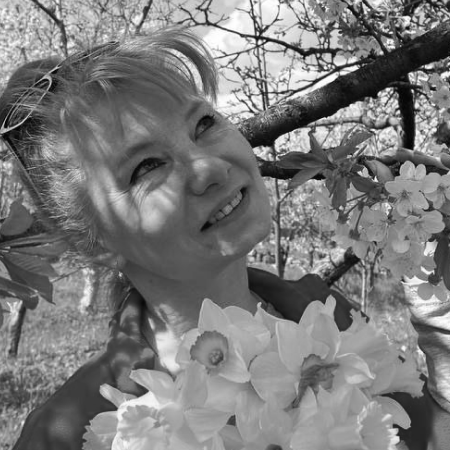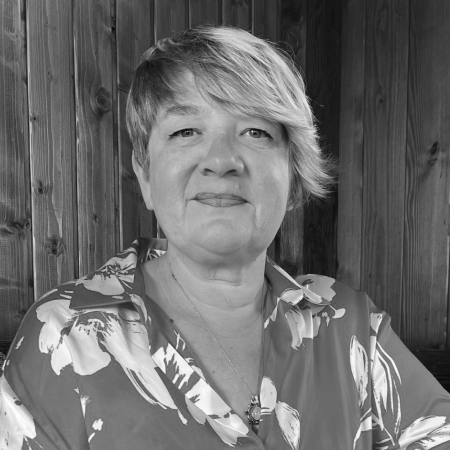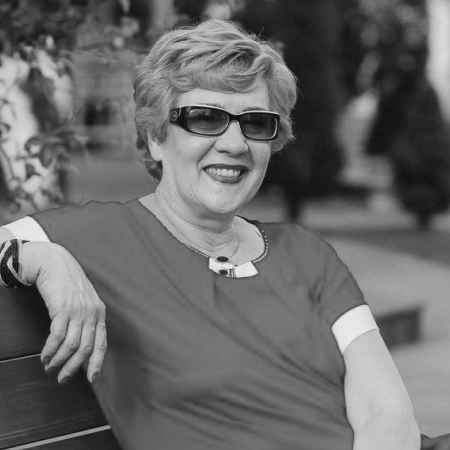Evacuation
It takes place in two stages
Meeting Ne Sami:
The Ne Sami team can connect with people personally in frontline areas or through printed materials distributed in places where civilians gather.
Issue:
Most often, people in frontline areas have no access to the Internet. They don’t trust evacuation posters with phone numbers either.
Solution:
We have created booklets containing information on the evacuation & adaptation process and posters with brief information about our program.
We also spend time in frontline areas to communicate with residents, inform them about the program, discover their concerns, and offer solutions. This way, we build trust and encourage people to leave dangerous zones.
Evacuation
as a comprehensive solution

Issue:
Other evacuation groups often limit the number of items people can take with them to 2-3 bags. Some organizations only evacuate people to the closest district center – that’s it.
Solution:
We let people take as many things as our bus can fit. We don’t leave people in shelters in other cities. Instead, we fully oversee the evacuation to a new home, having previously discussed every stage.
Evacuation group

Oleksandra Sakharuk
Oleksandra has experience working as a marketer in management positions in the IT sector. Thanks to this, Sasha can build coherent and effective teamwork systems. She is also engaged in journalism. Since the full-scale invasion began, she has filmed and reported on the events in Kyiv, Chernihiv, Donetsk, Luhansk, Zaporizhzhia, and Kherson regions.
During 2022–2023, Oleksandra worked for the Ukrainian independent media "Ikla" as a strategist and head of the journalism department.
Thanks to long-term communication with residents of frontline areas, Oleksandra discovered a need for a comprehensive evacuation system, and the NE SAMI project was born.

Serhii Lantukh
Serhii was born and spent his whole life in the Donetsk region before the war began. He was engaged in farming and personally transported his produce to various locations in the Donetsk region and throughout Ukraine. Because his business was closely related to transportation, Serhii knows the roads of the Donetsk region, Luhansk region, and other regions of Ukraine very well. After the war began in 2014, he was forced to move. Before the full-scale invasion in 2022, he worked as a driver because he lost his farms due to the war.
Housing

Issue:
Evacuation teams do not search for housing for IDPs, taking them to temporary shelters instead.
Solution:
We offer different options for permanent housing people can keep even after the war ends. This takes place through cooperation with partners that provide fitting accommodation.
Before cooperating, we visit housing sites and get to know the management to ensure that the options are decent and have all the necessary amenities.
*Some people don’t require housing because they move in with relatives or friends. In this case, we take them where they need to go.
Support

Issue:
People from frontline areas are scared of being alone in a new place and having no one to reach out to for support, which they require.
Solution:
We assign a personal manager to every evacuated family or person. The manager can be contacted anytime with a request for help. Moreover, our managers call the families every 2 weeks to ask about the adaptation process and discover any new needs.
Requests that our team can help with:
- Psychological support;
- Medical services organization;
- Paperwork assistance;
- Food, hygiene products, clothes;
- Individual needs: furniture, appliances, etc.;
- Help with finding work for adults and school/kindergarten for children.
Of course, there are requests we cannot satisfy (we are ordinary people, not sorcerers). However, we do our best to provide basic comfort for our evacuees.
Care Team

Olena manages the Ne Sami care department. She knows each person in the support program personally, sets up managers’ work, and develops opportunities for adaptation and socialization for forcibly relocated people.
Previously, Olenka spent 4 years working as a store manager with a large team and a considerable customer flow. She mastered communication, managerial work, and urgent task-solving. She also participated in the mentoring program for orphans, where she underwent various trainings — it now helps her better understand children in the Ne Sami program.

Olena is a teacher by education, so she effectively communicates with children and their parents. Currently, she’s engaged in the confectionery business. Since the start of the full-scale war, she’s been baking various goods for the immigrants.
She learned about the Ne Sami project from her daughter Oleksandra and decided to join to help adults and children affected by the terrible war. Olena’s father is from the Luhansk region, so she understands the pain of forcibly displaced persons. Paying a visit, helping, listening, getting acquainted with the city, issuing documents, meeting with doctors, having baked goods, and dreaming about a peaceful future – this is how her meetings go at KO-HATA sites. After the victory, Olena dreams about rebuilding the cities and villages of Luhansk and Donetsk regions.

Vika is a journalist with experience in social media literacy and combating disinformation at the state level.
After 9 years of living in Warsaw, she returned to Ukraine to apply all the acquired knowledge and skills at home and help her country develop.
For Vika, the Ne Sami project is a socially significant initiative she lacked and an excellent opportunity for personal development and discovery of her unknown possibilities.

Halyna is a resident of Ivano-Frankivsk and teacher by occupation.
She worked in Italy for over 15 years and devoted her life to helping and supporting the elderly.
She knows from real experience that there is no such thing as someone else’s grief. Halyna knows how to offer help when needed most, build healthy communication with people, and find the magic keys to their hearts.

Liliia is an economist by education and an excellent connoisseur of trade.
Like her sister Halyna, who also works for Ne Sami, Liliia worked in Italy for over 15 years, caring for the elderly. She solves complex problems rationally and engages in this with all her heart. She carefully analyzes the data and finds ways to use it. Liliia considers extreme responsibility her main advantage in working with people.

Anastasiia has experience as a coordinator of the “Ukrainian Volunteer Service” NGO in Lviv. Thanks to this, she communicates with other NGOs and potential partners efficiently. She also successfully raised funds to implement her events and projects.
Anastasiia has been volunteering with her grandmother and mother since 2015. She understands the importance of helping in place of indifference.
Anastasiia comes from the Donetsk region and was forced to evacuate her homeland twice. When she communicates and helps the evacuees, she experiences their pain as her own. She considers the NE SAMI project valuable because she knows how difficult it is to leave home without support.

Serhii was born and spent his whole life in the Donetsk region.
He was engaged in farming and personally transported his produce to various points in the Donetsk region and throughout Ukraine. Because his business was closely related to transportation, Serhii knows the roads of Donetsk, Luhansk, and other areas of Ukraine very well. He was forced to move after the start of the war in 2014. Before the full-scale invasion in 2022, Serhii worked as a driver because he lost his farms due to the war.